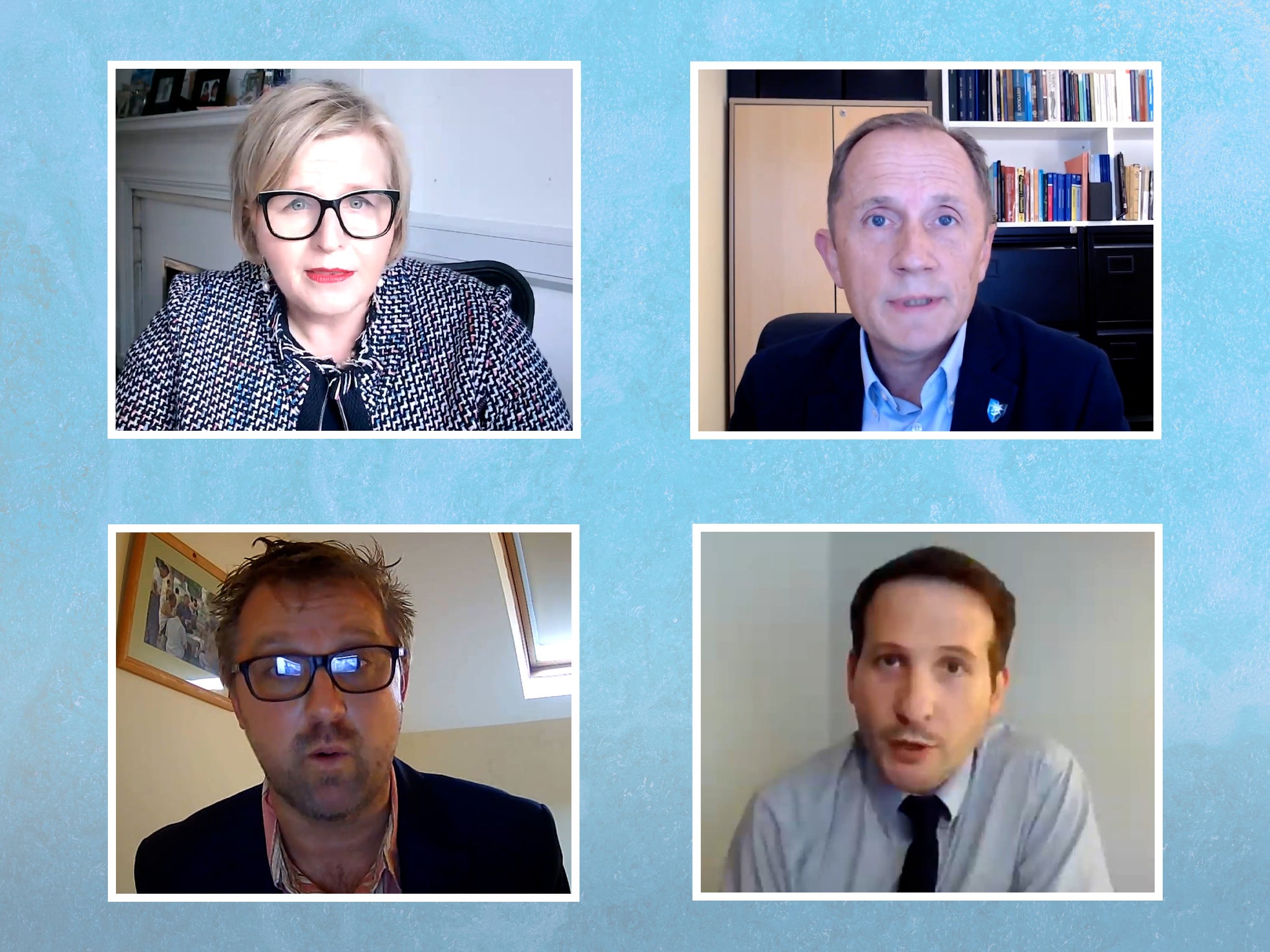NHS England maternity services may need overhauling to ensure safety, say experts
Experts in maternity care discussed what improvements need to be made to NHS services during an event hosted by The Independent’s Shaun Lintern


Your support helps us to tell the story
From reproductive rights to climate change to Big Tech, The Independent is on the ground when the story is developing. Whether it's investigating the financials of Elon Musk's pro-Trump PAC or producing our latest documentary, 'The A Word', which shines a light on the American women fighting for reproductive rights, we know how important it is to parse out the facts from the messaging.
At such a critical moment in US history, we need reporters on the ground. Your donation allows us to keep sending journalists to speak to both sides of the story.
The Independent is trusted by Americans across the entire political spectrum. And unlike many other quality news outlets, we choose not to lock Americans out of our reporting and analysis with paywalls. We believe quality journalism should be available to everyone, paid for by those who can afford it.
Your support makes all the difference.Maternity services may need to be reconfigured in order to ensure the highest standard of care, experts agreed at an exclusive virtual event held by The Independent last night.
The NHS maternity scandal: Inside a crisis panel discussion laid out the facts that although the UK is one of the safest places in the world to give birth, it could still be safer.
Concerns about the safety of maternity services in the NHS have been growing with repeated examples of poor care in recent years that went far beyond single isolated cases.
The Care Quality Commission has said more than two-fifths of maternity units needs to improve on safety while concerns over shortages of midwives and doctors mean services are being increasingly stretched.
There are efforts to improve care with £96m invested in maternity services by NHS England this year but only after a terrible roll-call of tragedies that have left thousands of families grieving and hurt.
These shortages were addressed during the event which was hosted by The Independent’s health correspondent Shaun Lintern, who has been covering the scandal for a number of years.
Watch the full event in the video below
The panel included Dr Eddie Morris, president of the Royal College of Obstetricians and Gynaecologists and James Titcombe, a patient safety campaigner and bereaved father.
They were joined by Donna Ockenden, a senior midwife who has been leading the inquiry into maternity services at Shrewsbury and Telford Hospitals. She is preparing her final report for publication later this year.
Ms Ockenden explained that one of the main issues at the heart of the country’s maternity services is the fact that they are not treated as the A&E of women’s health.
She said: “I think one of the major issues around maternity services is that we’re not treated in the same way as A&E.
“I think that people fail to see that actually, maternity is a woman’s A&E department, you can start a shift in any maternity unit, you can plan what you think you’re going to do. But actually you don’t know what is going to come in the front door.”
Dr Morris supported this view and added: “I don’t think trust boards and chief executives are necessarily listening to maternity, it’s always been the bit of medicine that as they like to say in management speak, consumes its own smoke, it gets on and does its job.
“But maternity is a front door specialty. It is the A&E of women’s health and it really should not be forgotten. At the beginning of the pandemic they were redeploying maternity staff at hospitals around the country, people just weren’t recognising the fact that pregnant women were still coming in and having their babies. I think there may well be a need to reconfigure services.”
Mr Titcombe experienced why there is urgent need for a systemic change within maternity services when his son Joshua died at Furness General Hospital nine days after being born in 2008. The loss of his son led him to go onto expose the poor maternity care at the University Hospitals of Morecambe Bay Trust. Mr Titcombe is a leading voice for maternity safety and works with the charity Baby Lifeline to help educate maternity staff on how to practice safer.
He said: “I believe that there was a bit of a tendency when the Morecambe Bay report was published, a lot of people were saying, you know that’s an isolated failure, that happened in a small maternity unit in the northwest of England, rather than thinking, the reality is these are issues that are probably affecting maternity units across the country.
“Fundamentally, I think there was a missed opportunity after the Morecambe Bay report to say this wasn’t a one-off failure. These are issues that are affecting maternity services across the country. And we need systemic change in every maternity unit.”
Our next virtual event is being hosted by our foreign editor David Harding and will discuss the situation in Afghanistan and what the future holds for the country.



Join our commenting forum
Join thought-provoking conversations, follow other Independent readers and see their replies
Comments